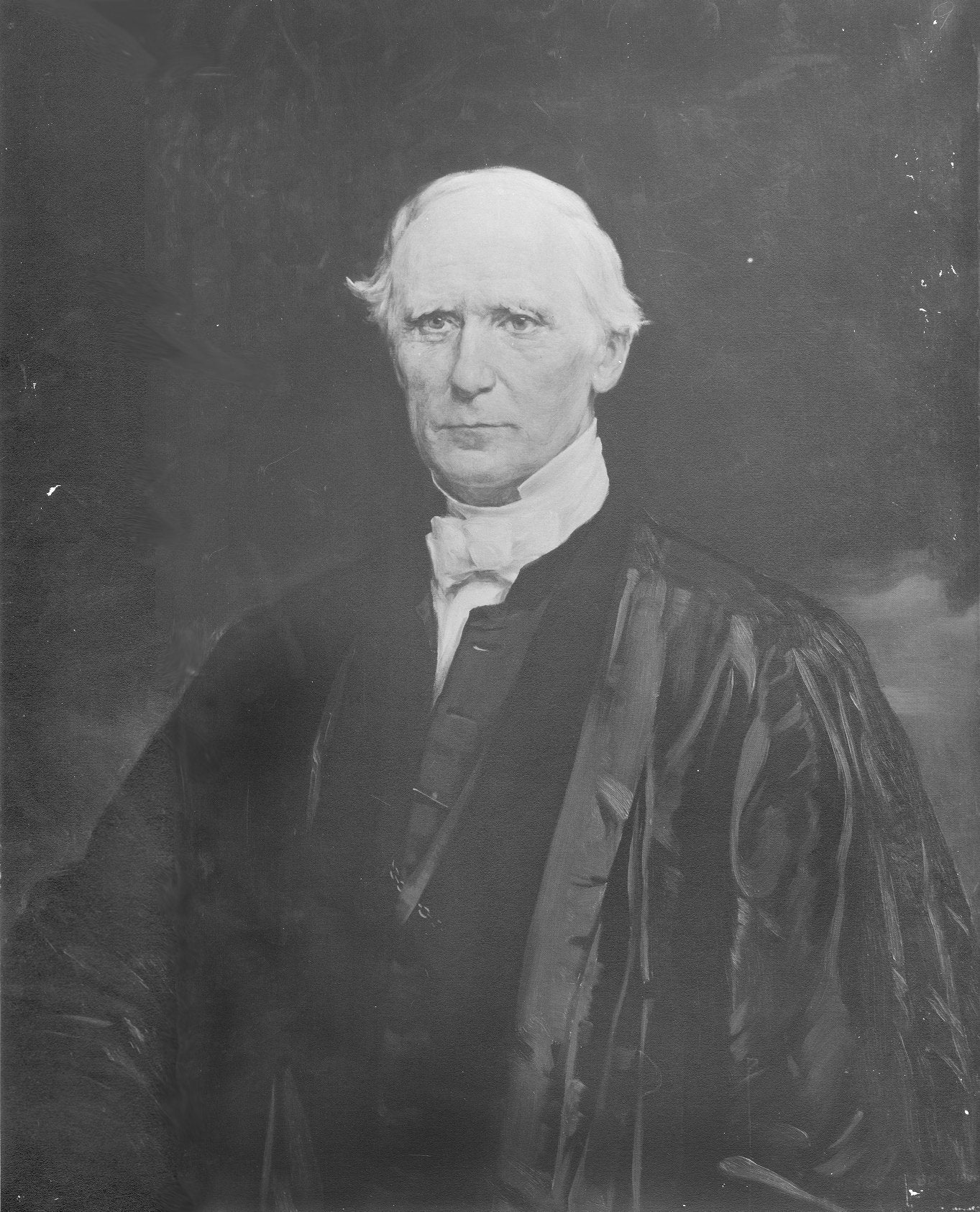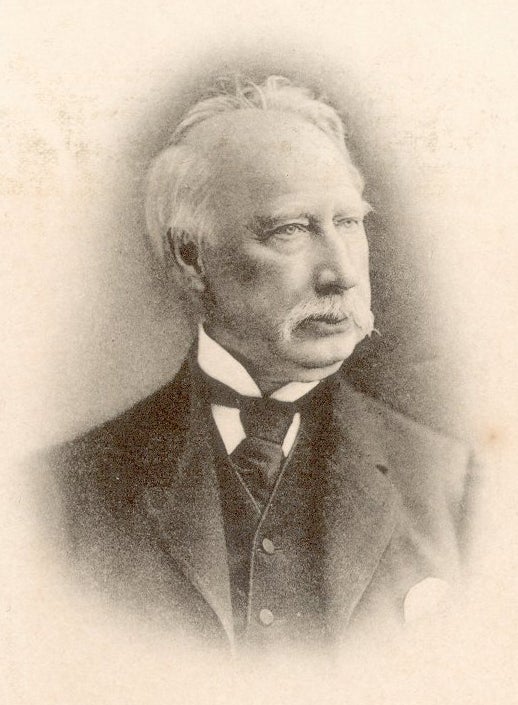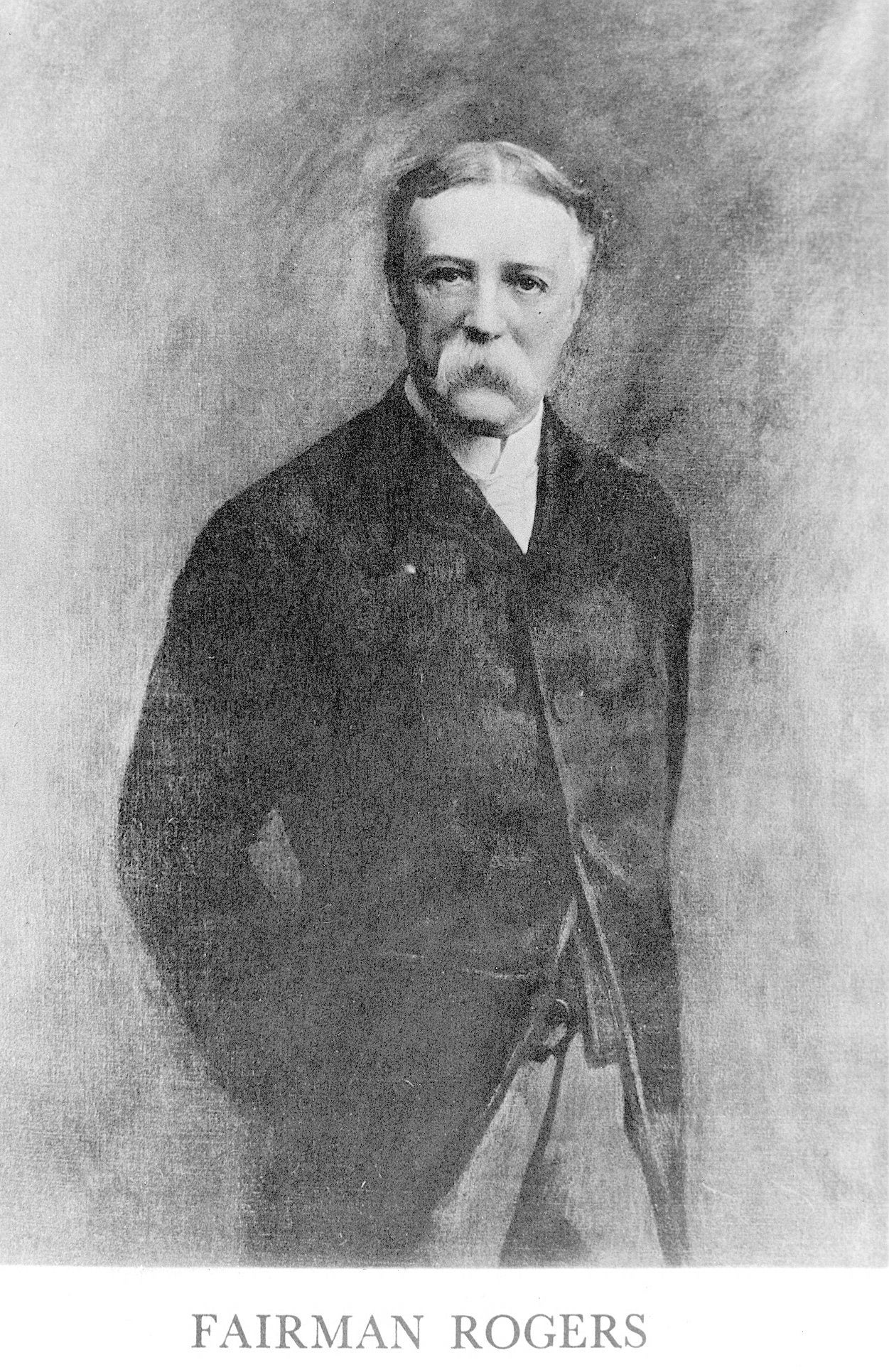From 1861 to 1865 the University of Pennsylvania consisted of these four faculties, whose professors are listed below:
- Department of Arts (College)
consisted of ten professors in the subjects of intellectual, moral and natural philosophy; the languages of French and German as well as Greek and Latin; English literature; chemistry; mathematics; and military drill. Three positions in American history, Italian, and chemistry (as applied to the arts) were unfilled. - Medical Department
consisted of twelve professors in the subjects of anatomy, chemistry, materia medica, obstetrics, pharmacy, surgery, and the theory and practice of medicine. Three of these professors were emeritus. - Law Department
consisted of three professors covering the subjects of constitutional, commercial, civil, and international law; of real estate, equity, and such practical matters as pleading and evidence. - College of Agriculture, Mines, Arts, and Mechanic Arts
consisted of three professors in the subjects of civil engineering, mining, and geology, mineralogy and palaeontology. Chemistry, mathematics, natural philosophy, English literature and language, and fine arts were taught by professors with joint appointments in the College. Begun in 1852 with the first appointment of a Professor of Civil and Mining Engineering, this was still a new division of the University; six positions in architecture, botany, mechanics, metallurgy, practical and scientific agriculture had not yet been filled.
Department of Arts (College)
Rev. Daniel Raynes Goodwin, D.D.
Provost of the University; Professor of Intellectual and Moral Philosophy
John Fries Frazer, LL.D.
Vice-Provost; Professor of Natural Philosophy and Chemistry*
George Allen, A.M.
Professor of the Greek Language and Literature
Henry Coppée, A.M.
Professor of Belles Lettres and of the English Language and Literature, and of Military Tactics, with Instruction in Military Drill*
Desiré Guillemet
Professor of the French Language and Literature
Francis Aristide Jackson, A.M.
Professor of the Latin Language and Literature
E. Otis (Ezra Otis) Kendall, A.M.
Professor of Mathematics*
James R. Lambdin
Professor of the Fine Arts*
Rev. Charles Christian Schaeffer
Professor of the German Language
Henry Vethake, LL.D.
Emeritus Professor of Intellectual and Moral Philosophy
*Joint appointment in the College of Agriculture, Mines, Arts, and Mechanic Arts
Unfilled Professorships in 1865:
- Chemistry, as applied to Arts
- American History
- Italian Language and Literature
Medical Department
D. Hayes (David Hayes) Agnew, M.D.
Demonstrator of Anatomy, and Assistant Lecturer on Clinical Surgery
Joseph Carson, M.D.
Professor of Materia Medica and Pharmacy
William Gibson, M.D.
Emeritus Professor of Surgery
Hugh L. (Hugh Lenox) Hodge, M.D.
Emeritus Professor of Obstetrics and of the Diseases of Women and Children
Samuel Jackson, M.D.
Emeritus Professor of the Institutes of Medicine
Joseph Leidy, M.D.
Professor of Anatomy
Richard Alexander Fullerton Penrose, M.D.
Professor of Obstetrics and of the Diseases of Women and Children
Robert E. Rogers, M.D.
Professor of Chemistry
Francis Gurney Smith, M.D.
Professor of the Institutes of Medicine
Henry Hollingsworth Smith, M.D.
Professor of Surgery
Alfred Stillé, M.D.
Professor of the Theory and Practice of Medicine
George Bacon Wood, M.D., LL.D.
Emeritus Professor of the Theory and Practice of Medicine
Law Department
E. Spencer (Elihu Spencer) Miller, A.M.
Professor of the Law of Real Estate and Conveyancing, and Equity Jurisprudence
P. Pemberton Morris, A.M.
Professor of Practice, Pleading and Evidence at Law and in Equity
George Sharswood, LL.D.
Professor of the Institutes of Law, including, inter alia, International, Constitutional, Commercial and Civil Law
College of Agriculture, Mines, Arts, and Mechanic Arts
J. Peter Lesley
Professor of Mining
Fairman Rogers, A.M.
Professor of Civil Engineering and Surveying
Charles B. Trego
Professor of Geology, Mineralogy and Palaeontology
Unfilled Professorships in 1865:
- Agricultural Chemistry and Scientific Agriculture
- Technical Chemistry and Metallurgy
- Botany
- Architecture and Practical Building
- Theoretical and Practical Mechanics
- Practical Agriculture



